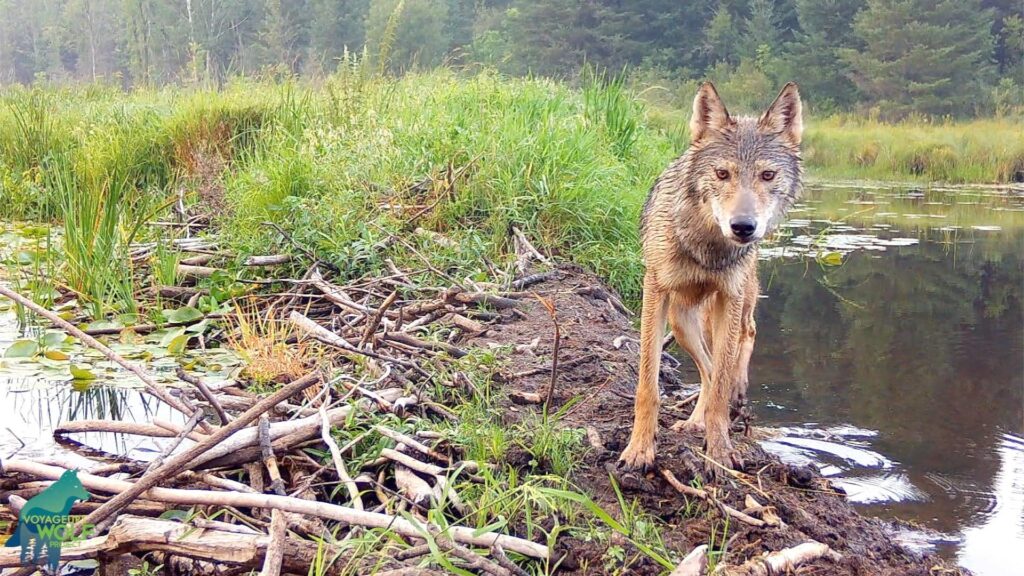
New research from the Voyageurs Wolf Project, based in Voyageurs National Park in northern Minnesota, has found that wolves have drastically different personalities when it comes to hunting beaver. Even within the same pack, scientists say their data shows some wolves are more willing than others to lay in wait and ambush the aquatic rodents. This has direct effects on how the pack influences local beaver populations and wetland abundance.
The wild canines vary greatly in their hunting habits, and their tendencies seem to be utterly driven by personality.
“A successful ambushing personality requires that wolves wait at ponds or along beaver feeding trails. Certain individual wolves wait more often and much longer than other wolves, even from the same pack,” said lead author Joseph Bump, associate professor at the University of Minnesota.
The researchers used GPS tracking collars and sophisticated data analysis to tease out the information. The project used eight pairs of collared wolves across six different packs in Voyageurs National Park and the surrounding area.
Power of personality
By assessing how wolf personality drives hunting behavior, the researchers were also able to build on previous research into how wolves affect wetlands. Beavers are the primary creators of wetlands in the Greater Voyageurs Ecosystem, and hunting by wolves can have a significant effect on local populations and their dam-building efforts.
“Most dog owners are convinced their dogs have personalities. We suspected wolves have personalities as well and that this difference can be seen in differences in predation and hunting behavior,” said co-author Tom Gable, Ph.D., a postdoctoral researcher and project leader with the Voyageurs Wolf Project.
Their analysis found that some wolves spent 263 percent more time laying in ambush for beavers, and killed 229 percent more beavers, than other members of their pack.
The research could provide new clues to the role of beavers and wolves in the region’s ecosystem. Beavers are a key “ecosystem engineer,” or “keystone species,” in northeastern Minnesota, with their dams creating ponds and wetlands that are key parts of the landscape for many species of wildlife, as well as managing stormwater runoff and related forces. The Voyageurs Wolf Project has shown over the past several years how some wolves in their study depend heavily on beavers as a food source.
More broadly, the biologists say the obvious differences in personality illustrate the cultural potential of wolves. Personalities are a key driver of culture, and the scientists say they want to next look into the role of a wolf pack’s culture in influencing the hunting behavior and personalities of offspring.
More information:
- How wolf personalities can alter wetlands – University of Minnesota
- Predator personalities alter ecosystem services – Frontiers in Ecology and the Environment
- Voyageurs Wolf Project

